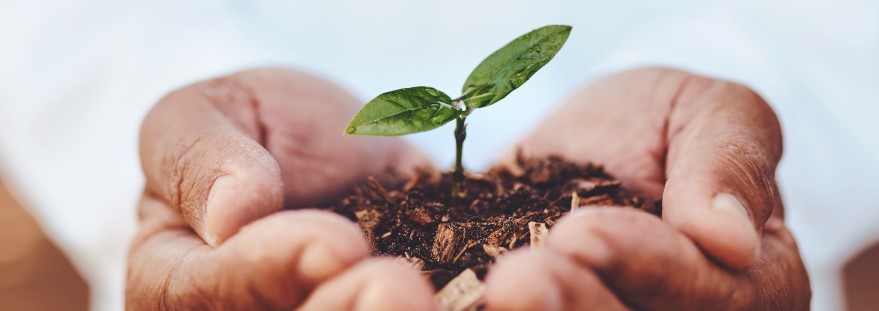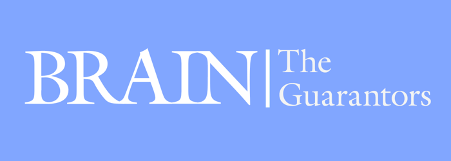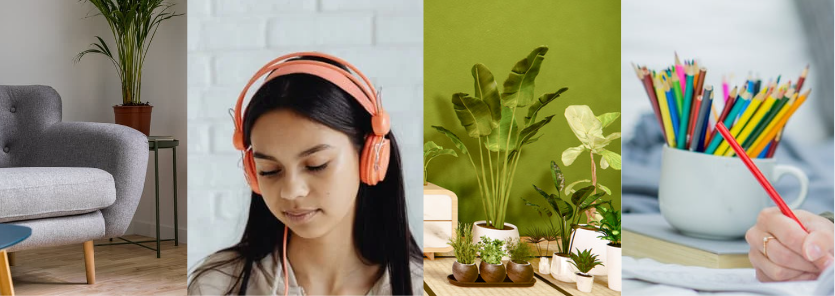Look after your wellbeing and mental health

At BNA2023, we know that keeping your mental health in check is just as important as the science you're learning. That's why we've integrated elements into the Festival that will help you to look after yourself during the conference - and take into your work life afterwards as well - in the most effective way possible.
Moreover, the BNA's Annual Theme for 2023 is the Neuroscience of Mental Health. You will therefore find a number of sessions throughout the scientific programme (and in the public programme) discussing what neuroscience has to offer in this space.
Page contents
- Rest and restore room
- Financial support for carers
- Children and families
- Prayer Room
- Ensuring a safe and inclusive space for everyone
- Neuroscience and mental health in the scientific programme
- Further sources of help, support and advice
Rest and Restore Room, in partnership with COMPASS Pathways
We're very excited to offer delegates the chance to experience the Festival's Rest and Restore Room.
This is a dedicated space for delegates to maintain their wellbeing during the conference itself.
If you're feeling overwhelmed by all the amazing sessions on offer, or simply want to chill out and recharge for a while, then you can do so without even leaving the venue by stepping into the Rest and Restore Room. Click here for more info,
 Financial support for carers
Financial support for carers
If you have caring responsibilities - for children or for anyone else - that make your attendance of BNA2023 more challenging, we encourage you to apply for a BNA-Brain Carer grant.
Carer grants are specifically to help cover additional costs associated with meeting caring reponsibilities whilst attending BNA2023, and reduce some of the anxiety and stress experienced by carers.
Please check out the full details and eligibility criteria here.
Children and families
If you would like to bring children up to the age of 16 with you to the Festival then they are very welcome!
Our childcare policy allows children onsite, free of charge, so long as the child is accompanied by their parent/guardian at all times. This includes the session rooms, talks, posters, and exhibition floor.
In addition, there will be a breastfeeding room for nursing babies, and we will provide a family room where children (and carers!) can have their own space, take a break, and let off steam at any time.
Prayer room
We also have a prayer room available for use by all delegates.
A safe and inclusive space for everyone
We want this Festival to be an inclusive and welcoming place for everyone. Our Safer Spaces policy - which all attendees must agree to adhere to when registering to attend - is designed to ensure everyone feels safe and respected throughout the event. Moreover, it includes steps you can take if you feel that anyone has not been following the policy. Please read the Safer Spaces policy in full here.
Neuroscience and mental health sessions in the programme
The following talks will be of interest to anyone wanting to learn more about neuroscience, mental health and psychiatric disorders. There will also be posters presenting the latest research in this area.
Sunday 23rd April 13:00 – 14:40 BST
Cezar Tigaret, Neuroscience & Mental Health Research Institute, Cardiff University, UK
CACNA1C, synaptic plasticity and contextual learning in psychiatric disorders
in Synaptic neurodevelopmental disorders: genes, cells, circuits, cognition (Full information)
Sunday 23rd April 13:00 – 14:40 BST
David Nutt, Imperial College London, UK
Between Receptor and Mind: How Psychedelics Work in the Brain
in The truth about drugs: the neuroscience, evidence, and drug checking (Full information)
Session convened by Drug Science
Sunday 23rd April 13:00 – 14:40 BST
Biological mechanisms underlying neurodevelopmental and neuropsychiatric disorders: findings from hPSC models (Full information)
Eunju Jenny Shin, Keele University, UK (co-chair): Understanding genetic risk factors for neuropsychiatric disorders in cortical interneuron development using human pluripotent stem cell differentiation
Deepak Srivastava, King's College London, UK: talk title TBC
In-Hyun Park, Yale University, USA: talk title TBC
Rana Fetit, University of Edinburgh, UK (co-chair): The effects of 16p11.2 deletion on subpallial development in ventral telencephalic organoids
Sunday 23rd April 16:20 – 18:00 BST
Genetic, epigenetic and immune mechanisms for major psychiatric disorders
Topic: Psychiatry and mental health
Andrew McIntosh, University of Edinburgh: Recent insights in depression from genetics and multi-omic studies"
Professor Marion Leboyer, INSERM: Title TBC
Mary-Ellen Lynall, University of Cambridge (co-chair): Innate and adaptive cellular immunology in psychiatry: insights from genetic association studies
Jonathan Mill, University of Exeter; title TBC
Ed Bullmore, University of Cambridge (co-chair)
Monday 24th April 09:30 – 11:10 BST
HIV mental health: where are we headed? (Full information)
Supported by the International AIDS Society
Arish Mudra Rakshasa-Loots, The University of Edinburgh, UK: Is it "all in your head"? The contribution of neuroinflammation to depression in a South African cohort of adolescents with and without HIV (co-chair)
Etheldreda Nakimuli-Mpungu, Makerere University, UK: Long-term effect of group support psychotherapy on depression and HIV treatment outcomes: Secondary analysis of a cluster randomized trial in Uganda
Kate Alford, Brighton & Sussex Medical School, UK: Quality of life in people living with HIV with cognitive impairment
Mercy Shibemba, PENTA Foundation, UK: 'Everything makes sense now!' The importance of sharing research with children and young people (co-chair)
Monday 24th April, 17:10 - 18:10 BST - PLENARY FOUR
Neuroscience and Neurodiversity
Sue Fletcher-Watson, University of Edinburgh
Mary Doherty, Brighton & Sussex Medical School/ Our Lady’s Hospital, Ireland
Tuesday 25th April 15:30 - 17:10 BST
Trevor Bushell, University of Strathclyde, UK
Astrocytes and major depressive disorder: a target for novel treatments?
In Glial function in CNS disorders: are astrocytes the real stars? (Full information)
Tuesday 25th April 15:30 - 17:10 BST
Novel strategies to improve drug delivery to the CNS, for treatment of psychiatric and neurodegenerative diseases (Full information)
Session convened by the British Association for Psychopharmacology.
Khuloud Al-Jamal, King's College London, UK: Quantitative and qualitative analyses of gold nanorods distribution in the brain following nose to brain administration
Asya Petkova, University College London, UK: Nose to brain delivery route for the treatment of neurodegenerative diseases (co-chair)
Maddy King, University of Nottingham, UK: Use of a novel cell-penetrating peptide to facilitate nose-brain delivery of oxytocin for treatment of psychiatric illness (co-chair)
David Dickens, University of Liverpool, UK: Strategies to boost the brain delivery of a NMDA receptor antagonist by targeting drug transporters at the blood-brain barrier
Tuesday 25th April 18:30 - 19:30 BST - PUBLIC LECTURE
by Professor Rory O'Connor
When It Is Darkest: Understanding the psychology of suicide risk
Sources of help and support
If you are struggling or know someone who is, please consider reaching out to one of the following organisations, who specilise in providing help and advice.
Abuse (child, sexual, domestic violence) NSPCC
Children’s charity dedicated to ending child abuse and child cruelty.
Phone: 0800 1111
0808 800 5000
Alcohol Misuse Alcoholics Anonymous
A free self-help groups. Its “12 step” programme involves getting sober with the help of regular face-to-face and online support groups.
Phone: 0800 917 7650
Al-Anon
Al-Anon is a free self-help “12 step” group for anyone whose life is or has been affected by someone else’s drinking.
Phone: 0800 0086 811
Alzheimer’s Society
Provides information on dementia, including factsheets and helplines.
Phone: 0300 222 1122
Anxiety UK
Providing support if you have been diagnosed with an anxiety condition.
Phone: 03444 775 774
Bipolar UK
Helping people living with manic depression or bipolar disorder.
Phone: 0808 808 4994
CALM
Campaign Against Living Miserably, for men aged 15 to 35.
Phone: 0800 58 58 58
Cruse Bereavement Care
Support people through one of the most painful times in life – with bereavement support, information and campaigning.
Phone: 0808 808 1677
Drinkline
A free confidential helpline for people worried about their own or someone else’s drinking.
Phone: 0300 123 1110
Happy Space UK
Preventative mental wellbeing organisation for young people.
Men’s Health Forum
24/7 stress support for men by text, chat, and email.
Mental Health Foundation
Provides information and support for anyone with mental health problems or learning disabilities.
Mind
Promotes the views and needs of people with mental health problems.
Phone: 0300 123 3393
National Association for Children of Alcoholics
National Association for Children of Alcoholics offers free confidential advice and information to everyone affected by a parent’s drinking including children, adults, and professionals.
Phone: 0800 358 3456
No Panic
Voluntary charity offering support for sufferers of panic attacks and obsessive-compulsive disorder (OCD). Offers a course to help overcome your phobia or OCD.
Phone: 0844 967 4848
OCD Action
Support for people with OCD. Includes information on treatment and online resources.
Phone: 0845 390 6232
OCD UK
A charity run by people with OCD, for people with OCD. Includes facts, news, and treatments.
Phone: 0333 212 7890
PAPYRUS
Young suicide prevention society.
Phone: 0800 068 4141
Rape Crisis
Rape Crisis England & Wales is the charity working to end sexual violence and abuse.
Phone: 0808 802 9999
Refuge
Advice on dealing with domestic violence.
Phone: 0808 2000 247
Rethink Mental Illness
Support and advice for people living with mental illness.
Phone: 0300 5000 927
Samaritans
Confidential support for people experiencing feelings of distress or despair.
Phone: 116 123
SMART Recovery UK
SMART Recovery UK face-to-face and online groups help people decide whether they have a problem with alcohol and drugs, build up their motivation to change, and offer a set of proven tools and techniques to support recovery.
Phone: 0330 053 6022
SANE
Emotional support, information and guidance for people affected by mental illness, their families, and carers.
YoungMinds
Information on child and adolescent mental health. Services for parents and professionals.
0808 802 5544

